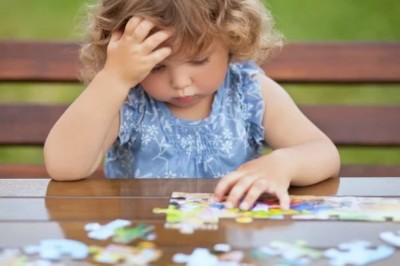Resilience is the ability to ‘bounce back’ after facing challenges and tough times. For children, this includes experiences like starting a new school, moving house, or dealing with family changes. Children build resilience through experience and supportive relationships. The following article provides strategies on building resilience in children.
What Is Resilience
Resilience is the ability to adapt and recover from difficult or challenging life experiences. It involves mental, emotional, and behavioral flexibility, allowing individuals to manage stress and adversity effectively. Here are some key aspects of resilience:
- Adaptability: Resilient people can adjust their thoughts and behaviors to cope with new situations.
- Emotional Regulation: They manage their emotions well, even in stressful circumstances.
- Problem-Solving Skills: Resilient individuals approach problems rationally and find effective solutions.
- Support Systems: Having a network of supportive relationships is crucial for building resilience.
Practical Strategies For Building Resilience in children
Fostering resilience in children involves creating a supportive environment and teaching them skills to handle challenges. Here are some practical strategies:
-
Build Strong Relationships: Establish a warm, supportive relationship with your child. This provides a secure basefrom which they can explore and face challenges.
-
Encourage Independence: Allow children to solve minor problems on their own. For example, if they don’t get invited to a party, discuss their feelings instead of fixing the problem.
-
Teach Emotional Management: Help children identify and manage their emotions. For instance, if they’re worried about a sick family member, acknowledge their feelings and reassure them.
-
Promote Problem-Solving Skills: Encourage children to brainstorm solutions to problems they encounter, such as dealing with unkind behavior from peers.
-
Model Resilience: Demonstrate how to handle setbacks and challenges in your own life. Children learn a lot by observing how adults cope with difficulties.
-
Encourage Persistence: Praise efforts and persistence, regardless of the outcome. This helps children develop a mindset of trying again after setbacks.
-
Build Self-Compassion: Teach children to be kind to themselves when they face disappointment or failure. This helps them move on from difficult experiences.
-
Recognize Positives: Make it a habit to acknowledge and celebrate positive events and achievements, no matter how small.
-
Provide Role Models: Identify positive role models who have faced similar challenges. This can provide children with relatable examples of resilience.
These strategies can help children develop the resilience needed to navigate life’s challenges effectively.
Connection Between Relationships and Resilience
Strong relationships play a crucial role in building resilience. Here are some key points on how relationships contribute to resilience:
-
Emotional Support: Having caring and supportive relationships helps individuals feel understood and valued, which can buffer against stress and adversity.
-
Role Models: Positive relationships provide role models who demonstrate how to handle challenges effectively. Observing others navigate difficulties can inspire and guide one’s own responses.
-
Encouragement and Reassurance: Supportive relationships offer encouragement and reassurance, helping individuals maintain a positive outlook and believe in their ability to overcome obstacles.
-
Problem-Solving Assistance: Friends and family can offer practical advice and help brainstorm solutions to problems, enhancing one’s ability to cope with challenges.
-
Sense of Belonging: Being part of a community or having close connections fosters a sense of belonging and security, which is essential for emotional well-being and resilience.
-
Validation of Feelings: Trusted relationships provide a safe space to express and process emotions, which is important for emotional regulation and resilience.
Investing in and nurturing these relationships can significantly enhance one’s resilience, making it easier to navigate life’s ups and downs.
Building resilience in young children is crucial for their ability to cope with challenges and bounce back from adversity.
Further Reading
Free Children's Books and Activities To Develop Social and Emotional Learning
Problem-Solving Strategies For Children
Importance Of Puzzles In Early Childhood
References
- Building Resilience, Harvard Education
- Building Resilience, Raising Children
- Kids and Resilience, Teaching Brave







 Here’s a comprehensive Mobile Phone and Smart Watch Policy tailored for early childhood education and care (ECEC) services in Australia, aligned with the latest 2025
Here’s a comprehensive Mobile Phone and Smart Watch Policy tailored for early childhood education and care (ECEC) services in Australia, aligned with the latest 2025 Across the early childhood education and care sector, educators are sounding the alarm: current staffing ratios are insufficient to deliver safe, meaningful, and developmentally appropriate
Across the early childhood education and care sector, educators are sounding the alarm: current staffing ratios are insufficient to deliver safe, meaningful, and developmentally appropriate Thanks to the new National Model Code and upcoming regulatory changes under the National Quality Framework (NQF), early childhood services across Australia must now implement
Thanks to the new National Model Code and upcoming regulatory changes under the National Quality Framework (NQF), early childhood services across Australia must now implement In the quiet hum of a weekday morning, something felt off. Preschool doors opened, but classrooms remained silent. No greetings. No redirection. No educators. And
In the quiet hum of a weekday morning, something felt off. Preschool doors opened, but classrooms remained silent. No greetings. No redirection. No educators. And A: In early childhood education and care (ECEC) settings across Australia, mobile phone use by educators is now subject to strict national reforms aimed at
A: In early childhood education and care (ECEC) settings across Australia, mobile phone use by educators is now subject to strict national reforms aimed at The end of the year is a busy and emotional time in early childhood services. Many services close for a short period over Christmas, and
The end of the year is a busy and emotional time in early childhood services. Many services close for a short period over Christmas, and In early childhood education and care, child safety is not just a number—it’s a practice. While educator-to-child ratios are essential, they are only one part
In early childhood education and care, child safety is not just a number—it’s a practice. While educator-to-child ratios are essential, they are only one part Being an educator is both rewarding and demanding. Between planning, documentation, room management, and supporting children’s wellbeing, the workload can feel overwhelming. That’s why practical
Being an educator is both rewarding and demanding. Between planning, documentation, room management, and supporting children’s wellbeing, the workload can feel overwhelming. That’s why practical A: Something as simple as a child asking to braid an educator’s hair—or children braiding each other’s can spark important questions about connection, trust, and
A: Something as simple as a child asking to braid an educator’s hair—or children braiding each other’s can spark important questions about connection, trust, and Here's a comprehensive, sector-responsive policy and procedure framework for the safe use of digital technologies—including CCTV—tailored for early childhood education settings. It balances child safety,
Here's a comprehensive, sector-responsive policy and procedure framework for the safe use of digital technologies—including CCTV—tailored for early childhood education settings. It balances child safety,


